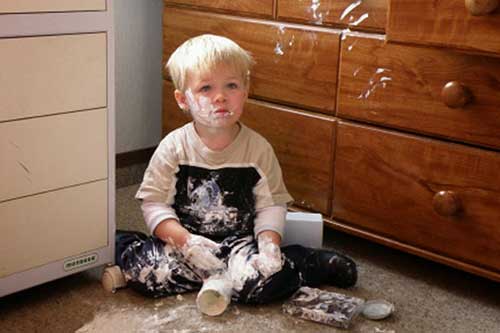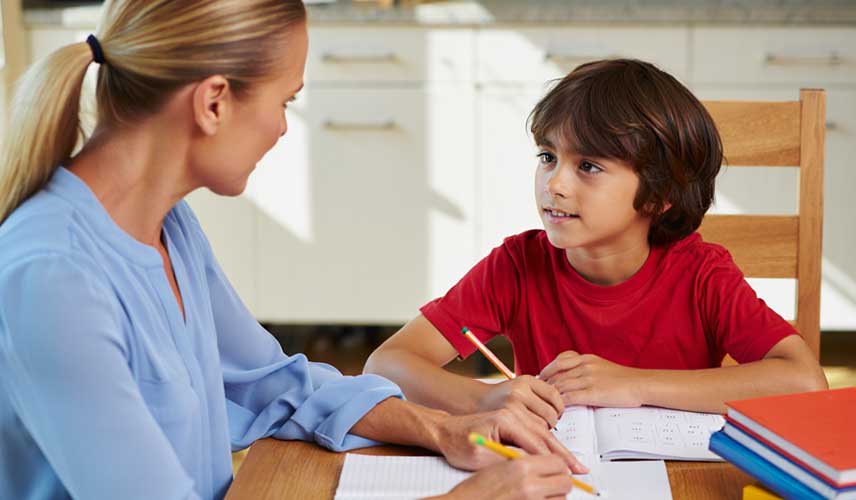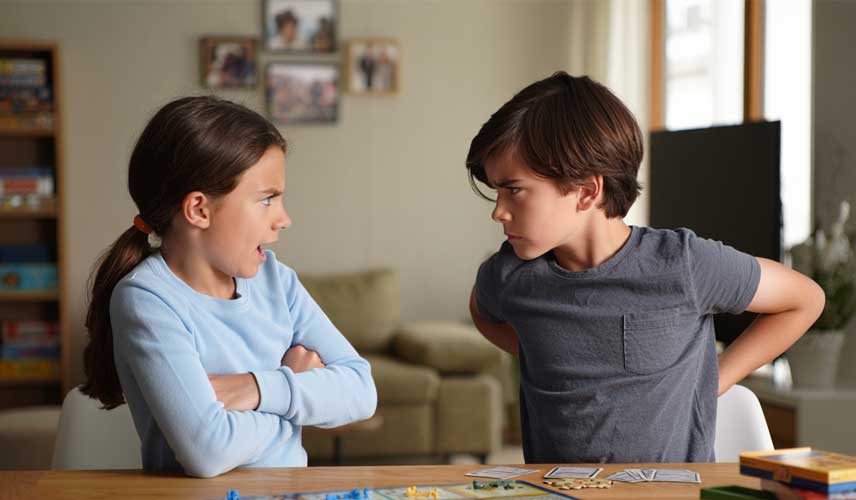
10 Ways to Deal with a Mischievous Child

Parenting is already a challenging task, and a naughty child can make it even more difficult. Fortunately, there are things you can do about it. Yes, every child is different, but when it comes to dealing with a naughty child, expert advice often proves to be effective. Reviewing the following suggestions can also help you find new ideas that suit your own circumstances.
1.Try to Understand the Reason for Their Behavior
Before taking drastic measures, try to learn why your child is constantly misbehaving. Observe how they react to different scenarios. Sometimes, children may act out to get the attention of their parents or those around them.
2.Pay Attention to Their Search History
As children grow, they may hide what is happening in their inner world and daily life from their parents. It is important to give them some freedom, but it is also necessary to know what they are experiencing. Your child may turn to search engines to research things they are hesitant to ask you. Be aware of how and for what they are using the internet.
3.Check the Computer Games They Play
Computer games can affect your child's overall psychological state more than you might think. You may have come across some negative news regarding this issue. For example, games that contain a lot of violence can fuel hyperactivity and destructive behaviors in children. You should ensure that your child is playing age-appropriate games that will not have negative effects.
4.Set Basic Rules and Enforce Them
In almost all lists of the golden rules of parenting, it is recommended to establish basic rules related to daily life and to enforce them consistently. Children may sometimes rebel against rules, but they definitely need them. This way, their lives become more organized, and they feel safer.
Set strict rules for things like dinner, bedtime preparation, and bedtime. Do not make exceptions in these matters unless there are extraordinary circumstances. If you have started giving your child some social freedoms, determine the time frames for when they can be out and when they should return home. Apply fair consequences if they do not adhere to such rules. It is important to be strict in this regard, and it is even more crucial when it comes to dealing with a naughty child.
5.Do Not Develop a Habit of Fulfilling Their Demands to Calm Them Down
Parents sometimes resort to fulfilling their children's wishes to stop their tantrums, even if they do not find it appropriate. If you do this consistently, it can lead to an increase in the number and intensity of such crises. Your child will start to see this as a method to get their desires met.
6.Pay Attention to What They Watch
TV programs and videos published on channels like YouTube can have negative effects on children. Your child may reflect the behaviors of children who constantly misbehave or exhibit violent tendencies in the broadcasts they watch. Therefore, monitor the types of content they can access and watch, and restrict them if necessary.
7.Limit the Use of Smart Devices
Dependency on smartphones and tablets is a common issue faced by today's children. If you do not want them to become addicted, set time limits for the use of such devices. Parental control applications will also be helpful in this regard.
8.Try to Avoid Reacting with Anger and Negativity
It is undeniable that children can sometimes drive you crazy, and undoubtedly, adults have their limits of patience. However, when it comes to a parent-child relationship, the parent should be the one to act carefully and maturely, no matter what.
A child may misbehave to understand and test their boundaries, to attract attention because they are sad, distressed, or angry, or for other reasons. Excessive yelling, insulting, belittling, or hitting can negatively affect children's psychology. Additionally, since they model their parents' behaviors, it can lead them to become adults who react in the same way. Therefore, you should do your best to stay calm and avoid expressing your emotions thoughtlessly.
There may be situations where you cannot control yourself. Do not act like people who completely give up their diet because they broke it for a day. Do not let yourself go by saying, "I did it once anyway." Try not to behave the same way next time.
9.Bullying: Both Experiencing and Witnessing Have Negative Effects
Many children may witness incidents of bullying at school or online. Every year, hundreds of thousands, even millions of children from different countries are exposed to such things, and some incidents are also featured on social media.
Check your child's social media profiles, review their friends' comments. Try to understand whether they know any children who behave bully-like towards their peers and whether they interact with them. Experiencing bullying can leave deep scars on a child. Even if they do not experience it themselves, witnessing it or communicating with bully children can negatively affect their personality.
10.Be a Friendly Parent
Be careful not to diminish the weight of your parenting role and be a friend to your child. This way, they will trust your understanding and open up their secrets to you. Get to know your child well and be aware of what is happening in their life. Get to know their friends and check if there is a positive environment around them. Be an involved and active parent; meet with their teachers and gather information about their attitudes and behaviors at school.
Practical Information for Parents Other Content in the Category

Practical Information for Parents
4 Tips for an Affordable Summer Vacation

Practical Information for Parents
10 Things to Do to Start the Day Fresh

Practical Information for Parents
What is Somatization Disorder, What are its Symptoms?

Practical Information for Parents
Good News for Working Mothers: Nursery and Caregiver Support

Practical Information for Parents
10 Ways to Deal with a Mischievous Child

Practical Information for Parents
What is Time Management and How to Do It?

Practical Information for Parents
The Importance of a Good Night's Sleep for Children and Adults

Practical Information for Parents
Screen-Free Family Activities Against Internet Addiction Risk

Practical Information for Parents
Ways to Start the Day Fresh

Practical Information for Parents
5 Tips to Be a Better Parent

Practical Information for Parents
What Does a Gardener Do?

Practical Information for Parents
About Mother's Day

Practical Information for Parents
How to Prevent Sibling Rivalry?

Practical Information for Parents
Tips to Help You Choose a Mother's Day Gift

Practical Information for Parents
